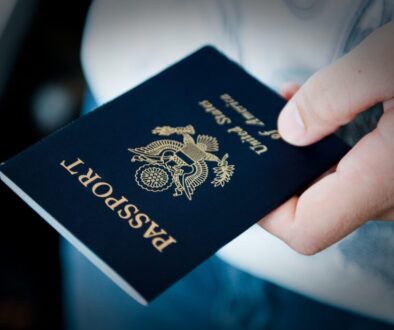Mailbag

Atlanta, GA
September 3, 2021
My recent missives raising questions and advocating personal choice regarding masks, vaccines, and quarantine would have been innocuous boilerplate a couple years ago.
Now, they draw more mail than anything I ever wrote. A few were complimentary. But several told me to stop writing, so I removed them from the mailing.
That’s fine. If people who’ve known me for decades decide my character and morals can be reduced to a single variable with which they disagree, then it’s probably good to know that I should let them go.
But others are more engaging. They’re willing to learn, and to teach. And I’m willing to listen. A couple weeks ago I answered a correspondent who questioned my questions about masks and vaccines. That produced more responses, and additional questions.
I’ve never done this, but I want to use this note to reproduce four of the questions. Let’s start with this one, with my response below each bullet:
- Do I have a right to continually blast AC/DC even if it is offensive to you? Are noise ordinances a violation of my constitutional rights? Isn’t blasting pathogens worse than noise?
No one has the “right” to do any of these things outside the bounds of his own property. If another property owner requires a mask or vaccine as condition of entry, then we can choose to do what he says, or not go in. Likewise if he asks us to turn our music off.
On our own property we can ditch the mask, blast our music, or walk around with virgin veins. But when we go out in public, we assume certain risks and are willing to accept various hazards or annoyances. Among these are that we might get sick or hear things we don’t like. We know the world isn’t a giant “safe space”.
When we wander about, we may get irritated at whoever makes the noises. And we might begrudge someone who gets us sick. But before the Covid saga, most of us never thought he violated our rights.
There is no right not to get sick. As I mentioned in the essay I linked above, we usually wouldn’t know who infringed such a “right” or how it could be enforced.
Most people walking around (with or without masks) aren’t “blasting pathogens”. As people always have and always do, some may be carrying contagions. But the majority probably aren’t. And among those who are, they are as likely to be vaccinated as not.
But even if these vectors are inadvertently spreading germs, that’s nothing new. We’ve always run the risk that someone could accidentally transmit the flu, bronchitis, strep, or pneumonia.
Yet till last year, we never demanded that people with no symptoms wear masks or stay home. Flu shots were encouraged, but not demanded.
We’ve rarely required shots, masks, or physical separation even of those who do have symptoms of respiratory illness. It may have annoyed us to be around such people, but we were all the time. We knew we took that chance whenever we went among the public.
This common sense approach to an airborne virus isn’t new. Until the Covid episode, we took it for granted as long as I’ve been alive (including during the ‘68-69 Hong Kong flu and the ‘76 Swine Flu, among many others).
Assessing our own trade-offs and respecting those of others is a normal aspect of daily existence. If high speeds scare us, we simply avoid the interstate. We don’t demand that everyone else drive 40 mph to ease our angst, or that they stay off the highway so we can get on it.
Those of us with significant aversion to risks would be the ones to take precautions or stay home. Before last year, we’d not be so presumptuous to demand that strangers (including children!) bear burdens to alleviate our fears or to accommodate our health concerns. Managing those is our responsibility, not anyone else’s.
- What if I have purple-breath covid? Do I have a right to go maskless in public? Do I have the right to be in public at all? Were Typhoid Mary’s constitutional rights abridged?
This response is similar to the first one. Someone with purple-breath Covid has as much right to go maskless in public as someone with purple-breath bronchitis, or purple-breath flu (which, depending on the demographic, can be more dangerous than Covid).
We’ve never denied that people with the flu or bronchitis have a right to go in public without a mask. We may agree that it’s inconsiderate or not a good idea for them to be out, but we never suggested they should be deprived the right.
Like many of us, I’ve been on flights with them innumerable times, but never thought they should be vaccinated, masked, or quarantined. It never crossed my mind.
I agree that if anyone who’s sick, whether in public places or on private property, intentionally spreads illness to others (e.g., by aggressively coughing or sneezing in their face), he should be liable for any harm he inflicts.
This is akin to someone who knows he has AIDS sleeping with an unwary partner. That would clearly be considered an assault. But if that person sleeps with someone without any idea he has AIDS, then he’d not be liable. In that case the partner suffers the consequence of bearing the risk.
Intent matters. As does personal responsibility.
We shouldn’t expect total strangers (who can’t possibly know our personal risk profile) to stay home, inject medicine, or wear masks simply because we’re frightened or feel susceptible whenever we leave the house. To do so seems unreasonable, and selfish.
As to Typhoid Mary, I don’t know if her constitutional rights were abridged, because I don’t know whether the New York State Constitution permitted her quarantine or not (but I assume it did). Her US Constitutional rights weren‘t violated because that document is silent on how the sovereign states handle such matters. But that’s a smart ass legalese evasion.
To the main point, I think a case can be made for isolating someone who is obviously sick with an easily communicable and particularly deadly disease. Covid is certainly contagious, but for most people it’s not deadly, nor likely to be.
And we are fortunate to know the demographic cohorts at highest risk. We should take advantage of this knowledge, rather than treating everyone as if they’re likely to die if they come down with this disease. Those in nursing homes, who are overweight, or otherwise in poor health are well-advised to take vaccines and be extra careful.
But the vast majority of people should probably treat Covid as they would the flu. This is by no means to minimize its potential ramifications. The flu is nasty, and can be deadly. For young people, and particularly kids, it’s statistically much more lethal than Covid.
But we never had children endure contract tracing or masks in response to that much more dangerous (to them) seasonal virus. Nor did we coercively quarantine or vaccinate anyone else, or shame or shun them if they refused.
Rather than politicize a germ, we used common sense, and let free people make their own decisions. Somehow, we’ve developed herd immunity to that sensible approach.
- Is it in someone’s “enlightened self-interest” to refuse a proven vaccine (excluding medical or religious reasons)?
Maybe. It depends on the person, and what they perceive their “enlightened self-interest” to be.
It also depends on the vaccine, and what it’s intended to prevent. Most people will wear a “proven” helmet if they’re skiing down a mountain, but not if they’re walking down the street.
Like anything else, all vaccines, even proven ones, entail some risk. Most of us would take a polio vaccine without a second thought, but many may not waste time getting one for a common cold.
We all have different fears, value scales, and risk assessments. As with anything, it is up to each person to weigh where evading this virus lies on his own personal scale.
For some, it will be near the top of the list. Those people will take vaccines, stay home, wear masks, whatever. That makes sense.
For others, including those who are healthy or who’ve already had Covid, concern may not be high, and they may not want to incur whatever physical or psychic risks they think the vaccine carries. That’s their prerogative.
I can’t know all the direct and collateral effects taking or refusing a vaccine has on another person (essentially all of whom I don’t know and will never meet), so I can’t presume to tell them whether it’s in their “self-interest” to inject a vaccine or not. No one else can either.
- Does someone who has the “right to refuse” taking reasonable precautions against getting the virus have a “right to medical treatment?”
Nobody has a “right” to medical treatment, because such a right doesn’t exist. But everyone has a right to refuse taking precautions against anything.
Whether the precautions are “reasonable” or not is up to each individual to decide for himself and his family. It’s not for perfect strangers to dictate on his behalf.
But what of the burden on the medical system from those who decide against the shots?
Does someone who refused “reasonable precautions” by, say, eating the “wrong“ things, smoking too much, drinking to excess, or driving too fast deserve medical treatment for the cancer, heart disease, diabetes, or auto accidents that result?
I suppose doctors can refuse service on whatever terms they like. But they took an oath, and are in the business of healing bodies, not passing judgment or casting stones. From within the fragile walls of our own glass houses, most of us should probably avoid the temptation to toss them.
And as to medical expenses and shortages, Covid is less a cause than a symptom. High cost and low supply are what you get with any government-controlled racket, of which “healthcare” is merely a prime example.
There are virtually no market dynamics in this industry. Everything is controlled, to one degree or another, by the State, its regulatory agencies, and the Pharmaceutical and Insurance companies that fund them.
Resolving these problems is not a matter of castigating the sick, but (among many other things) of allowing more market forces into medicine, removing ridiculous regulations, and eliminating Certificate of Need laws that limit hospital facilities and additional beds.
I recognize that the virus persists. What we need to come to terms with is that it always will. It’s endemic. The idea of eradicating Covid has never been realistic. We need to learn to live with it, as an additional risk in a crowded field.
To address it, I have no issue with anyone suggesting masks (useless as they may be). Nor do I have a problem with people encouraging vaccinations. I completely agree that for many people it makes sense to take them.
But many tactics being deployed to intimidate those who aren’t persuaded are anything but “minimally intrusive”. Aside from overbearing public peer pressure, corporations and governments are all but teaming up to coerce compliance among the recalcitrant.
Employees are being forced to choose between their health concerns about vaccines (whether we think they are rational or not is irrelevant) and their livelihoods. This is more than mere “encouragement”. It’s more like making them an offer they can’t refuse.
And governments are already taking “truly objectionable” steps in the ostensible name of controlling this virus. In more and more cities in the US, Canada, and Europe, private businesses are being told they can’t serve someone unless he proves he’s taken a drug the government wants him to inject.
In Australia, people are being arrested for leaving their house. New Zealand too. In more and more formerly free countries, citizens are being asked to show papers as pre-condition for moving around. The frightening tactics have already begun. Unless they’re resisted, they aren’t likely to go away.
Why, once governments have this power, will they limit its application to an alleged curtailment of Covid? They won’t. Why would they? They never do. It’ll expand to other areas of speech, purchases, behavior, “climate”, etc. This is the time to push back, not to accommodate.
Once we have these electronic “passports”, it won’t be hard for governments to limit what we can do or where we can go. This to me is far more ominous than any threat this virus (dangerous as it can be) presents.
Covid probably won’t kill me, tho’ it might. But I have no doubt it’ll spare my sons. My concern is for the world they’ll survive to see, and I don’t like the way it’s looking at us.
JD



